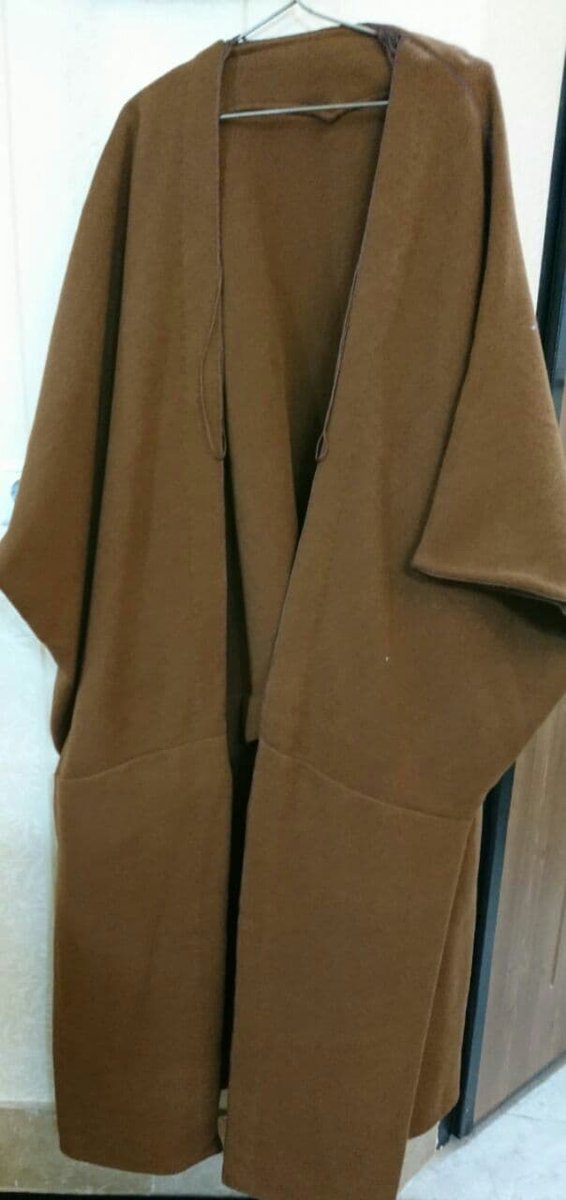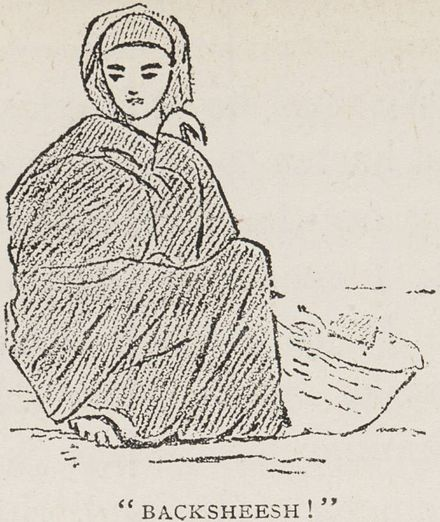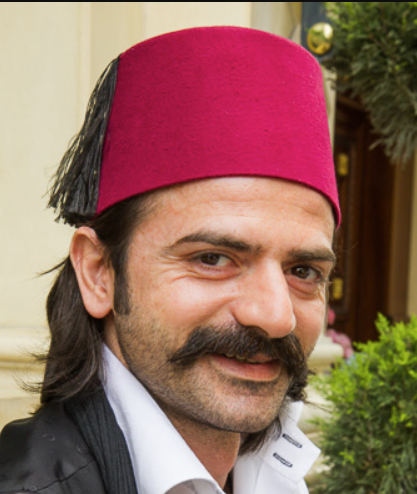Persians call the robe many Muslim cultures wear an 'aba (عباء), which is an Arabic word, and Arabs call it a bisht (بشت) which is an Arabization of the Persian word 'back' (پشت).
In Levantine Arabic, a calendar is called a rūznāmeh (روزنامة), a Persian loanword via Ottoman Turkish, but Persians call it a taqvīm (تقويم), which is an Arabic loanword.
In Egyptian Arabic, a tip or monetary aid is called 'bakshīsh' from the Persian bakhshesh (بخشش), but Persians tend use an'ām (انعام), an Arabic loanword.
In Iran, the constitution is called qānūn-e asāsī (قانون اساسی) meaning 'fundamental laws' formed from the Arabic words meaning 'law' and 'base,' but in Arab countries, the constitution is called a 'dastūr' (دستور), a Persian loanword meaning rule, basis, foundation, etc.
In Iran, the individual points of a contract are called 'shart,' (plural shurūt - شرط، شروط) a loanword from Arabic meaning 'conditions,' but in the Arab world, they are called 'band' (plural, bunūd - بند، بنود) a Persian loanword.
Persians call a tailor a 'khayāt' (خیاط), an Arabic loanword. Urdu speakers say 'darzī' (درزی) from the Persian 'darz' (meaning stitch). The Turks turned 'darzī' into 'terzi.'
Arabs call their teacher 'ustāz' (أستاذ), an Arabization of the Persian 'ustād' (استاد), but Persians call their teacher 'mo'alem' (معلم), a loanword from Arabic.
'Luck' in Arabic is 'bakht' (بخت), a Persian loanword, but (Iranian) Persians colloquially say 'chance' (شانس), a loanword from French. 'Bakht' is now considered a more formal word.
Arabs call electricty 'kahrobā' (کهرباء), a loanword from Persian (now archaic in Persian) but Persians use the Arabic 'barq' (برق) (now archaic in Arabic).
Arabs got tea from Persian, so they call it 'shāy' (شاي) from the Persian (and ultimately Chinese) 'chāy' (چای). Conversely, Persians got coffee from Arabs, so they call it 'qahveh' (قهوه) from the Arabic 'qahwah' (قهوة). Qahwah used to mean wine in Arabic before it meant coffee.
Arabs borrowed the Middle Persian 'tāzeg' (تازگ, meaning fresh) as 'tāzej' (تازج). Then Persian transitioned to New Persian and lost the ending 'g,' turning 'tāzeg' into 'tāzeh' (تازه). Then the Arabs re-borrowed the newer word from Persian via the Ottomans, replacing 'tāzej.'
Arabs call a fez a 'tarbūsh' (طربوش) from the Persian words 'sar' and 'pūsh' (سرپوش) meaning 'head' and 'wear' respectively, but the Persians call it a 'fineh' (فینه). The English word comes from French, because Fez, Morocco was a place of production.
Arabs call a hookah an 'arīgleh' (ارجيلة) or 'shīsheh' (شيشة) from the Persian words 'nārgīl' (نارگیل) and 'shīsheh' meaning coconut and glass, because they used to be made of a coconut wood stem and glass base. Modern Persians call it a 'qelyān' (meaning 'thing that bubbles).
The English 'hookah' comes from the Arabic 'huqah' (حقة) meaning jar, casket, or box, which is still used in Urdu. In modern Persian 'huqah' is associated with the phrase 'huqah bāz,' meaning charlatan (literally: box player, they have a box full of tricks).
Levantine Arabs call their bedsheets 'sharshaf' (شرشف), borrowed from the Ottoman Turkish 'chārshāf' (چارشاف), which is borrowed from the Persian 'chador-e shab' (چادر شب) meaning 'night tent.'
From a reply: The Persian 'chamedān' (چمدان) is borrowed from Russian, which was borrowed from the Persian 'jāmeh dān' (جامه دان) meaning 'clothing holder.' (If someone can find a source for this please post it).
If you're interested in languages, you might also like my translations of Persian poetry over @PersianPoetics :)

 Read on Twitter
Read on Twitter




